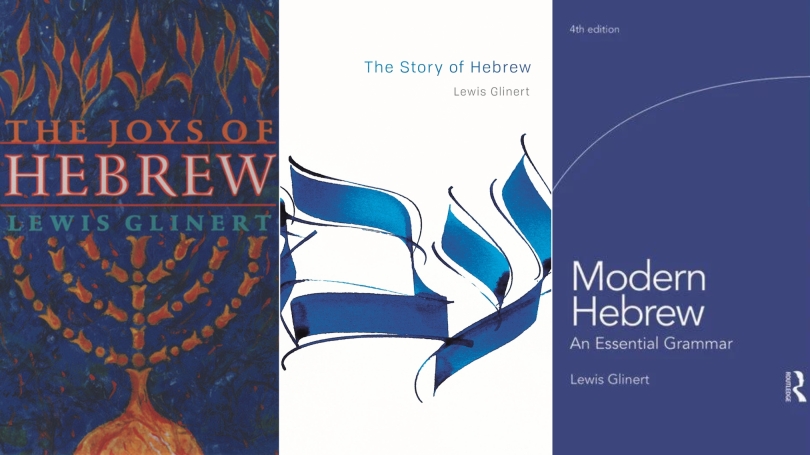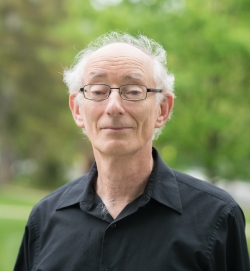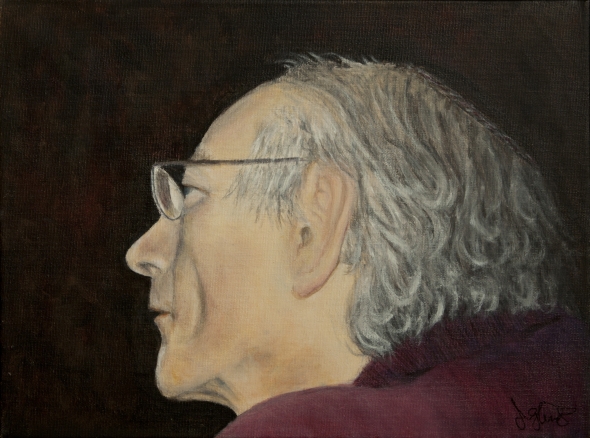

The world's premier institution for the Hebrew language has granted honorary membership to professor Lewis Glinert.
Lewis Glinert, a professor in the Middle Eastern Studies Program, has been named an honorary member of the Academy of the Hebrew Language.
Based in Jerusalem, the Academy of the Hebrew Language is the world's premier institution for the Hebrew language. It establishes new Hebrew words and sets standards for modern Hebrew grammar, orthography, transliteration, and punctuation based on the historical development of the language.

An esteemed scholar of Hebrew, Glinert is the author of four seminal books devoted to the language. His 2017 volume, The Story of Hebrew, a history of Hebrew from biblical times to modern Israel, garnered praise from both academic and mainstream outlets, including the Wall Street Journal and Publishers Weekly, which called it a "must-read for students of language and Jewish history."
With his 1989 book, The Grammar of Modern Hebrew, Glinert offered the first comprehensive reference work on modern, colloquial Hebrew morphology and syntax. This was followed by his influential guide, Modern Hebrew: An Essential Grammar, now in its fourth edition.
The Joys of Hebrew, Glinert's 1993 book, offers a collection of the best-known Hebrew words and phrases in the English-speaking world, with more than 600 Hebrew words and expressions arranged in alphabetical order.
Glinert also edited a volume of essays about Ashkenazic Hebrew, the language used by European Jews beginning in the tenth and eleventh centuries.
"This membership is a personal thrill for me and a fulfillment of a lifetime's academic and emotional fascination with this unique rebirth of Hebrew," Glinert says, "but with a twist that tickles my very British sense of whimsy."
When Hebrew was revived in the early 20th century, it was supervised by Israeli scholars in a "normative and paternalistic" spirit, Glinert says. "'Correct' Hebrew had to hew to literary precedent and ancient pronunciation. Anything colloquial was condemned."

"When Cambridge University Press published my volume The Grammar of Modern Hebrew in 1989, members of the Academy of the Hebrew Language were not amused," he recalls. "But of course I was! This was descriptive linguistics, and here was I, a Brit, neither an old-style philologist nor a native Israeli, telling them what their own language was doing."
Since then, Glinert says, society has changed. Schools and scholars are more laidback about Hebrew. "Even the Academy has moved with the times."